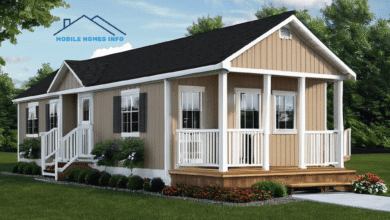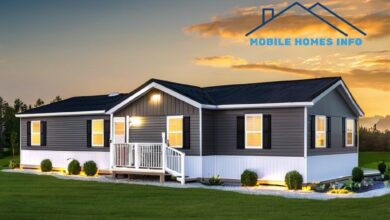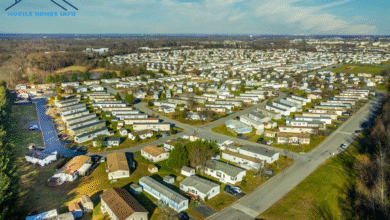What Is a Mobile Home? The Ultimate Guide to Mobile , Manufactured, Modular and Trailer Homes.
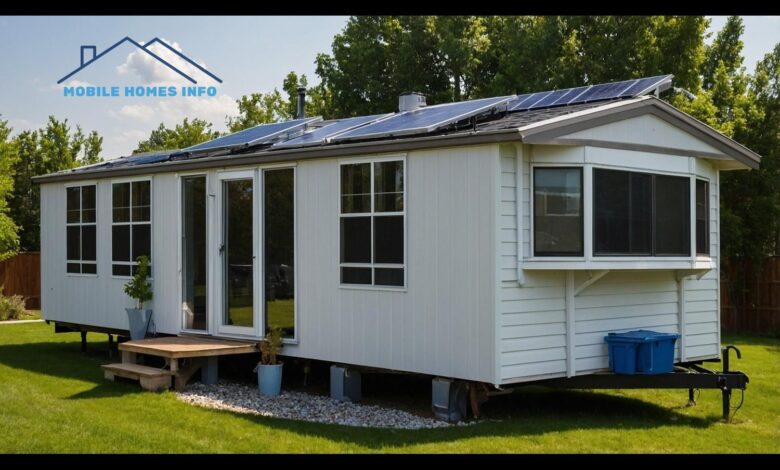
Introduction
Welcome to the ultimate guide on mobile homes, manufactured homes, modular homes and trailer homes. The term mobile home is often used interchangeably with other terms like manufactured homes, modular homes and even trailers houses. However, there are distinct differences between these housing types. Whether you’re considering buying one curious about their benefits or just want to know the differences between these types of homes you’ve come to the right place.
Mobile homes, once thought of as a temporary or less desirable housing option, have experienced a major resurgence in recent years. The rising cost of traditional homes and the growing demand for affordable housing have made mobile homes a fascinating and affordable housing option for millions of people worldwide.
Whether you’re looking for a starter home, a vacation property or an affordable long-term residence mobile homes offer a flexible, budget-friendly alternative.
Table of Contents
1. What Is a Mobile Home?
A mobile home, as defined by the U.S. Department of Housing and Urban Development (HUD), is a prefabricated home built in a factory and transported to a specific location. The main characteristic that differentiates mobile homes from traditional houses is that they were initially designed to be mobile meaning they could be transported from one place to another. Mobile homes come in various sizes and designs catering to different needs and preferences. This characteristic makes them an attractive option for those seeking a cost-effective and adaptable living solution.
However, with the implementation of the HUD Code (1976) for manufactured homes, the term “mobile home” was officially replaced by “manufactured homes. Still, the public continues to use “mobile home” as a catch-all term for all factory-built homes, even though many of these homes today are manufactured homes or modular homes.
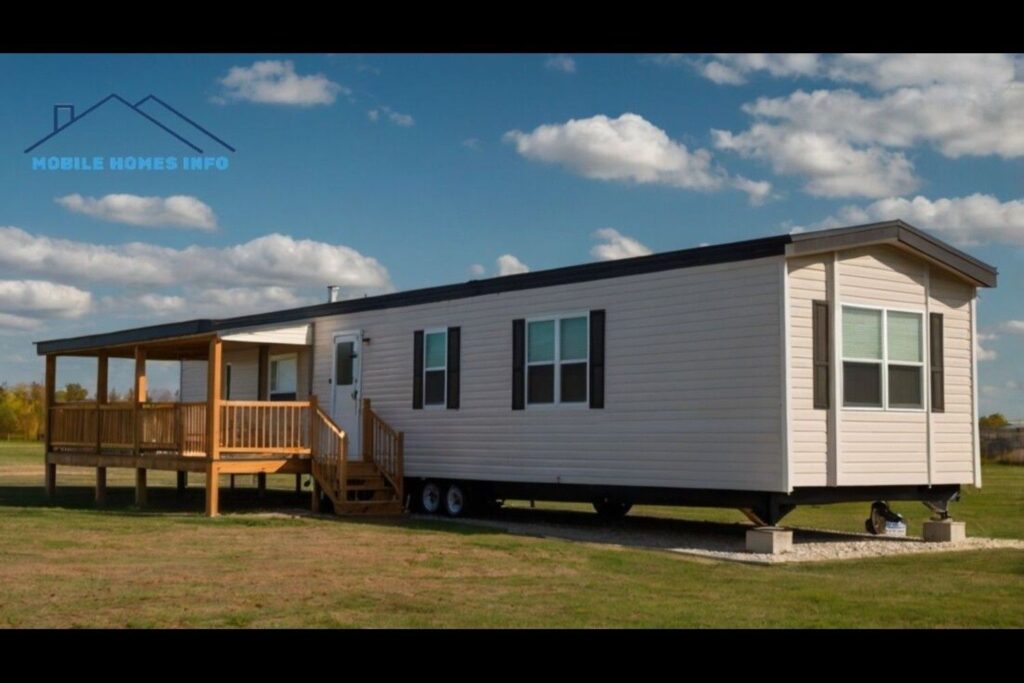
2. History of Mobile Homes?
The concept of mobile homes dates back to the early 20th century when trailer houses were initially designed for camping or travel. In the 1920s and 1930s, trailers began to evolve as they were designed to be compact, easy to transport and cheaper than traditional homes.
After World War II, there was a significant surge in demand for affordable housing, and trailers became a more widespread option for families. This growth led to the rise of the mobile home industry in the 1950s, as companies began mass-producing homes designed to be more permanent yet still portable.
a. The HUD Code and Transition to Manufactured Homes
A pivotal moment in the history of mobile homes came in 1976 when the U.S. Department of Housing and Urban Development (HUD) established the HUD Code. This change helped improve the quality of mobile homes, resulting in the emergence of what we now call manufactured homes. The HUD Code set national standards for construction, safety, and installation, ensuring a higher level of durability and safety.
b. Cultural and Economic Impact
Mobile homes have played a crucial role in providing affordable housing for millions of Americans, particularly those seeking low-cost alternatives to traditional homes. Despite their practicality, however, mobile homes have faced cultural stigma, often being perceived as substandard or temporary.
This stigma has evolved over time but modern mobile homes particularly those built post-1976 have improved both in quality and perception. With the increasing affordability of traditional homes, mobile homes continue to serve as a refuge for those seeking affordable living in an increasingly expensive housing market.
3. Key Differences Between Mobile Home Vs Manufactured Vs Modular and Trailer Homes?
a. Mobile Homes:
The term “mobile home” generally refers to homes that were built before 1976. These homes did not have to meet the same building codes required for today’s manufactured homes. While many people still use “mobile home” in everyday conversation, the official term for homes built after 1976 is “manufactured homes.
b. Manufactured Homes:
After 1976, HUD (Department of Housing and Urban Development) introduced stricter building standards. Manufacturers now build these homes following specific guidelines for construction, safety and materials. These newer standards ensure better safety and quality.
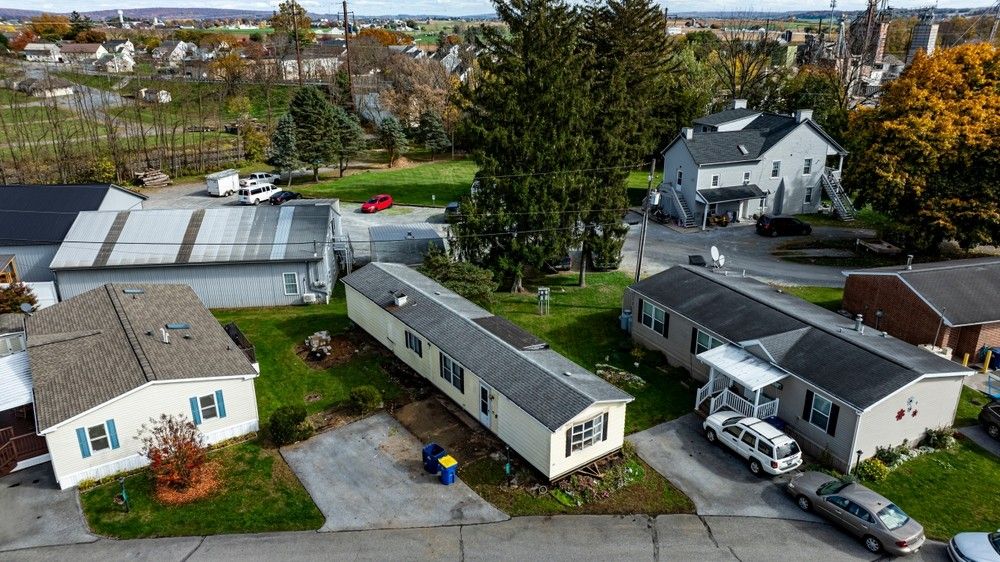
c. Modular Homes:
Modular homes are different from mobile and manufactured homes. Manufacturers build these homes in sections at a factory, then assemble them on-site. They follow the same local building codes as traditional homes making them look identical to conventional houses once complete.
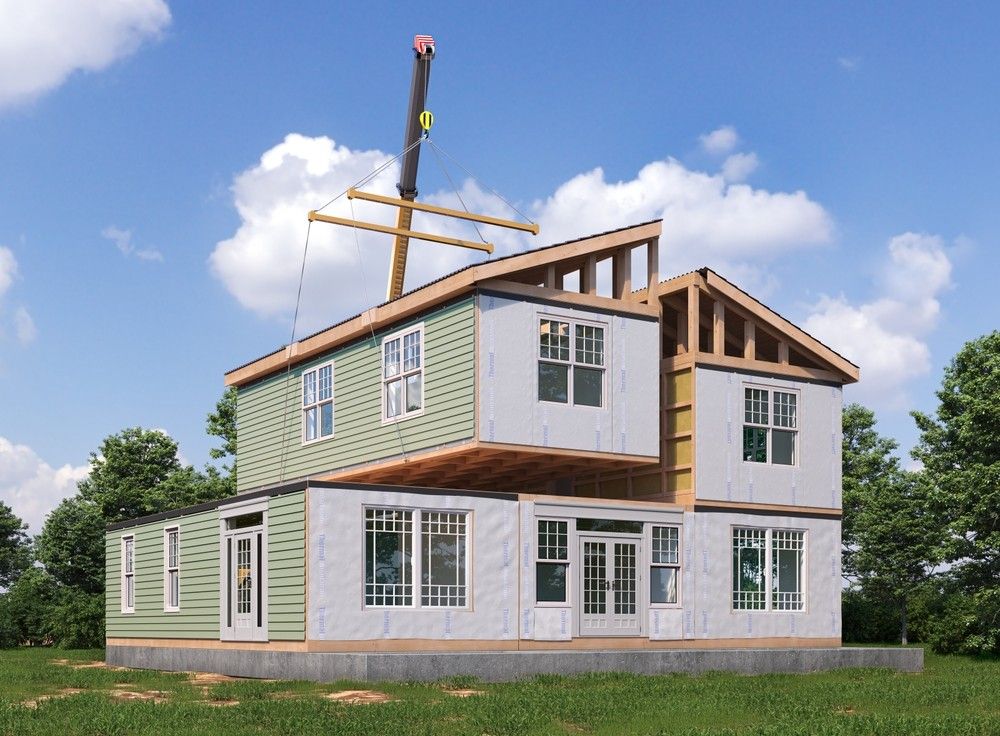
d. Trailer Homes:
Trailer homes is an older term often used interchangeably with mobile homes, but it refers specifically to homes that were built before the HUD Code in 1976. These homes were more like travel trailers and were not designed for permanent residence.
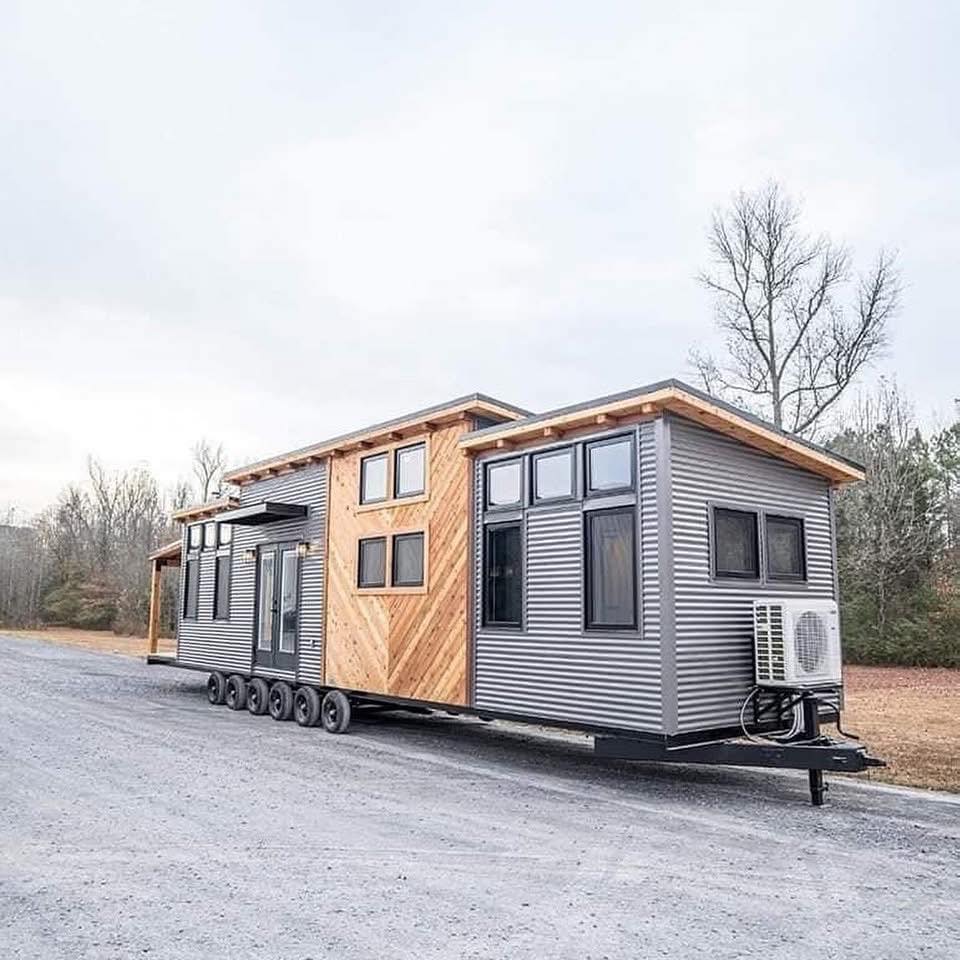
4. Types of Mobile Homes:
Not all mobile homes are the same, and understanding the differences between various types can help you choose the right fit for your needs.
a. Single-Wide Mobile Homes:
Single-wide mobile homes are the most common type of mobile home. Typically ranging from 12 to 18 feet wide and 60 to 90 feet long, these homes offer a compact and affordable living space. The layout often includes two or three bedrooms, a bathroom, and a small kitchen and living area.
Ideal Users: Single-wide homes are ideal for smaller families, retirees, or individuals looking for a simple, affordable living space.
b. Double-Wide Mobile Homes:
Double-wide mobile homes are typically twice the width of single-wides, offering a larger living space. These homes range from 20 to 40 feet wide and 60 to 90 feet long, and they are often designed to provide more comfort and luxury. They come with multiple bedrooms and larger kitchens and bathrooms.
c. Triple-Wide and Larger Options:
Some mobile homes are even larger than double-wide options. These expansive homes are built with three sections and can be customized with high-end finishes, larger floor plans, and advanced amenities. They are designed for people who want more space and customization without the price tag of a traditional home.
d. Park Model Homes:
Park model homes are smaller, more compact homes designed for use in RV parks or seasonal communities. While they share similarities with mobile homes, park model homes are generally smaller (less than 400 square feet) and meant to be used as vacation homes or seasonal residences. [1]
5. Benefits of Mobile Homes
Mobile homes offer a variety of benefits that make them an attractive housing option for many people.
a. Affordability:
mobile homes deliver significant cost savings compared to traditional site-built homes and these savings come from lower construction costs, fewer required materials and faster build times all working together to reduce the overall price tag.
b. Cost Comparison:
On average, a mobile home costs around $50 to $80 per square foot, while a traditional home costs about $150 to $200 per square foot.
c. Flexibility and Mobility:
Mobile homes are designed to be moved, offering a level of flexibility that traditional homes don’t provide. Whether you need to relocate for work, personal reasons, or just want a change of scenery, you can take your home with you, unlike a traditional house.
d. Eco-Friendly Designs:
Many mobile homes are now built with sustainable materials and energy-efficient systems, making them a greener option compared to traditional homes. Features such as energy-efficient windows, solar panels, and low-energy appliances help reduce your environmental footprint.
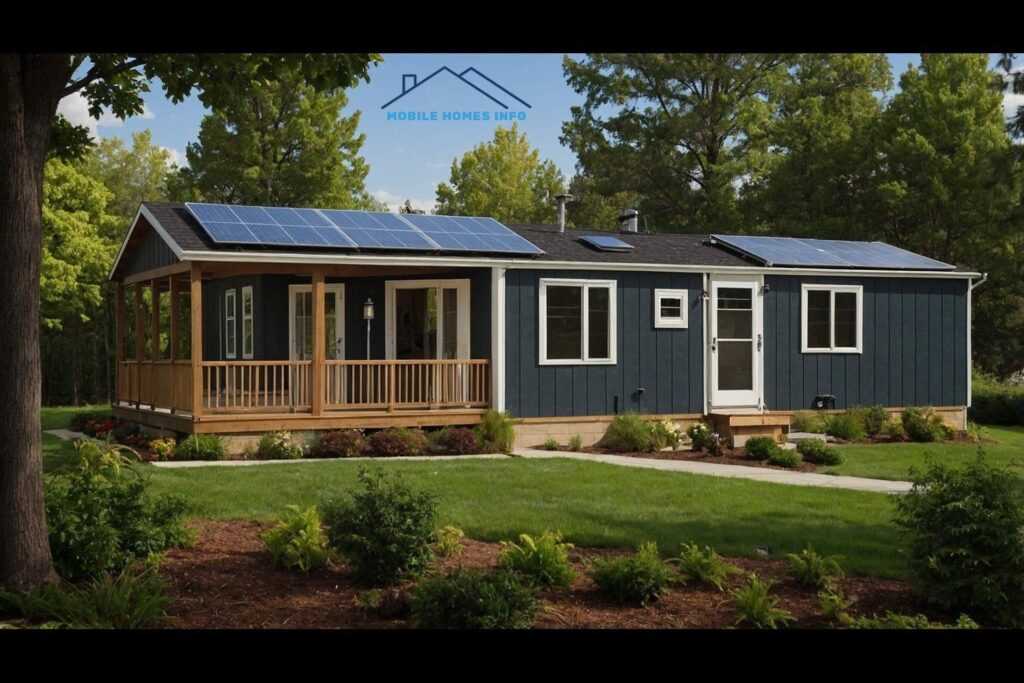
e. Quick Construction:
The construction time for a mobile home is significantly shorter than that of a site-built home. While a traditional home can take months or even years to build, mobile homes can be ready for occupancy in as little as a few weeks, depending on the manufacturer.
f. Community Living:
Mobile home parks offer a unique living experience, with shared amenities like swimming pools, clubhouses, and playgrounds. These communities foster a sense of belonging and provide a more affordable living environment than traditional neighborhoods.
6. Challenges of Mobile Homes
While mobile homes offer numerous benefits, there are also challenges to consider before making a purchase.
a. Depreciation of Value
Unlike traditional homes, which tend to appreciate over time, mobile homes typically depreciate in value. This is mainly because mobile homes are considered personal property rather than real estate.
b. Land Ownership vs. Renting
If you place your mobile home on rented land, you’ll face monthly lot fees in addition to your mortgage payment. These fees can add up over time, and you may not have the same level of control over the land as you would if you owned the property outright.
c. Weather and Safety Concerns
Mobile homes, especially older models, may not be as durable in extreme weather conditions like hurricanes, tornadoes, or heavy snow. However, newer homes are designed to meet higher wind resistance standards and are more resilient.
d. Financing Challenges
Obtaining financing for a mobile home can be more difficult than securing a traditional mortgage. Lenders may offer higher interest rates or fewer financing options due to the home’s depreciation. It’s important to research financing options carefully.
9. FAQs About Mobile and Modular Homes
-
What is the difference between a mobile home and a manufactured home?
Manufactured homes are built after 1976 and are subject to stricter safety and construction standards under the HUD Code, whereas mobile homes were built before this date and may not meet the same standards.
-
Are mobile homes safe in extreme weather conditions?
Modern mobile homes are built to withstand a range of weather conditions, but older models may be less durable. Newer homes are designed with higher wind resistance standards.
-
How long does a mobile home typically last?
With proper maintenance, a mobile home can last anywhere from 30 to 50 years, or longer in some cases.
-
Can mobile homes be financed like regular houses?
Financing options for mobile homes are available, but they may come with higher interest rates and more stringent terms compared to traditional mortgages.
-
Do mobile homes appreciate or depreciate in value?
Mobile homes generally depreciate in value over time, unlike traditional homes, which tend to appreciate.

